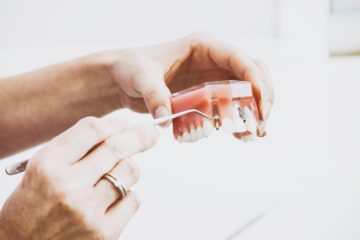Three Characteristics That Make You a Good Candidate for Dental Implants

Dental implants are at the forefront of dental technology. Generally regarded as the best tooth replacement option available, dental implants have become increasingly popular and accessible in recent years. As beneficial as implants are, however, they are somewhat case selective and are far more successful when specific criteria are met. Here are three personal characteristics that will make you a good candidate for dental implants.
Good Oral Hygiene
In order for dental implants to have the best long-term prognosis, good oral hygiene is a must. Thus, patients who take excellent care of their teeth make the best dental implant candidates. While it’s true that implants are entirely synthetic and thus cannot develop cavities, they must be cared for as if they were natural teeth. This means flossing and brushing them every day. Dental implants are susceptible to plaque and bacteria, which can cause conditions such as peri-implantitis that can lead to bone loss and implant failure.
You Are Missing One—or Just a Few—Teeth
Although dental implants do have applications for patients who are missing all of their teeth, those who are missing only one, or just a few teeth, are ideal candidates. Patients who have natural teeth remaining are able to spread the forces of their bite across many teeth as well the implant. The less torque and force placed on an implant, the better. In addition, implants are well-suited for patients missing few teeth, since other alternatives like partial dentures are not meant to replace single teeth.
You Have Adequate Bone
Dental implants derive their outstanding strength and stability from the fact that they fuse with the bone that surrounds them. As such, a certain density and volume of bone is necessary at the prospective implant site in order to have successful treatment. Similarly, some sites in the mouth are more naturally suited to implants than others. The back of the upper jaw, for instance, is often a difficult spot to place implants due to the close proximity of the maxillary sinus. Even if you have deficient bone in the implant site, there are certain procedures that can generate more bone—other procedures can relocate the floor of the sinus, making the upper jaw more capable of retaining dental implants.
If you are missing teeth and feel that dental implants are the right treatment for you, talk to your dentist to find out if you are a good candidate. With dental implants, you can regain outstanding function and aesthetics of your smile.





No Comment